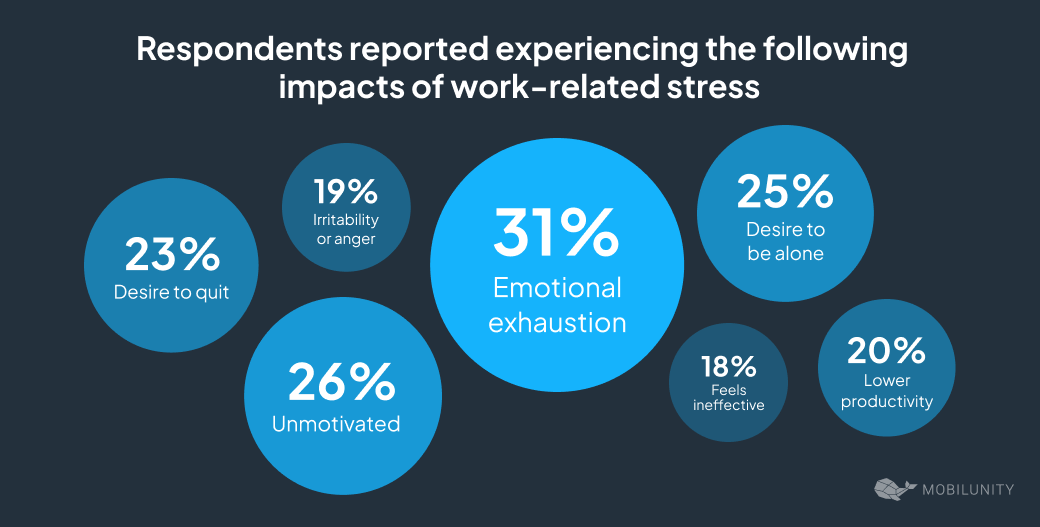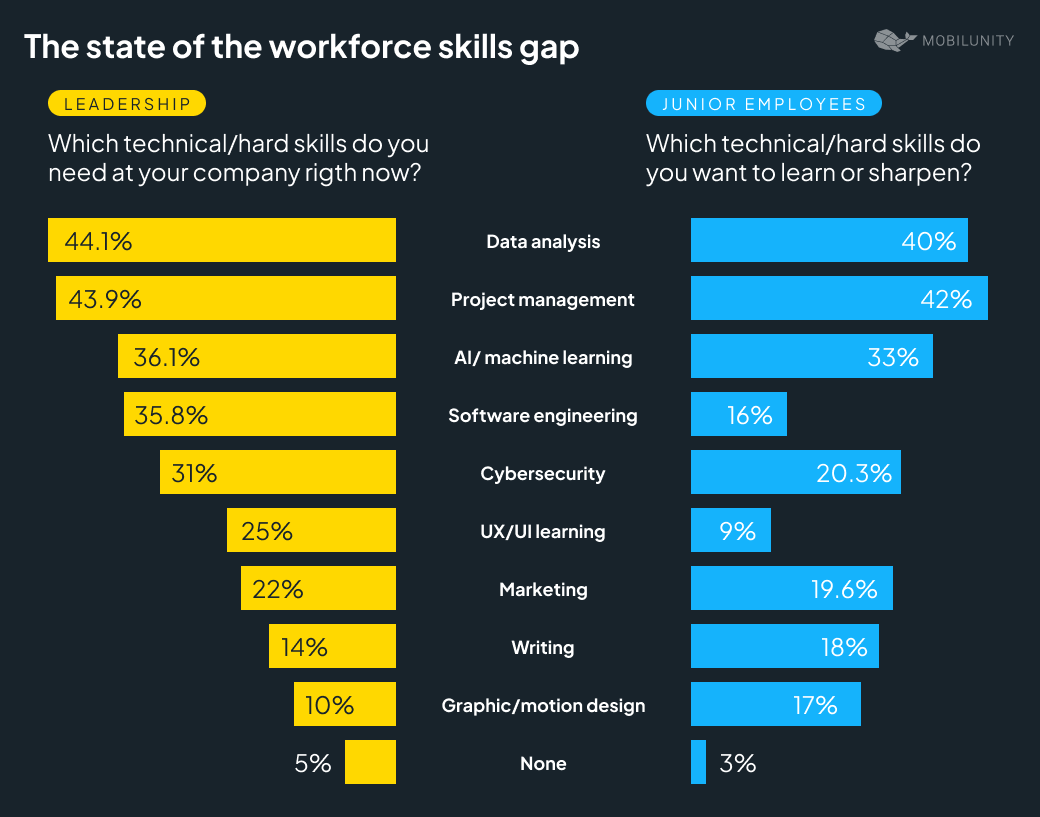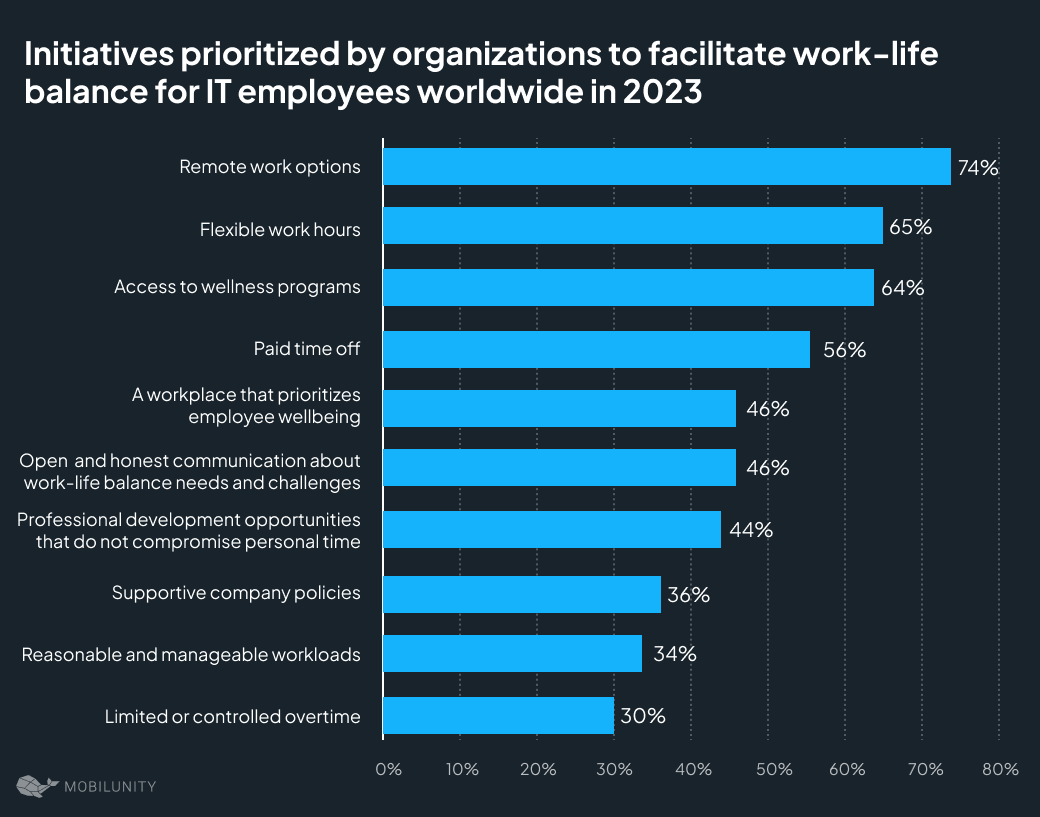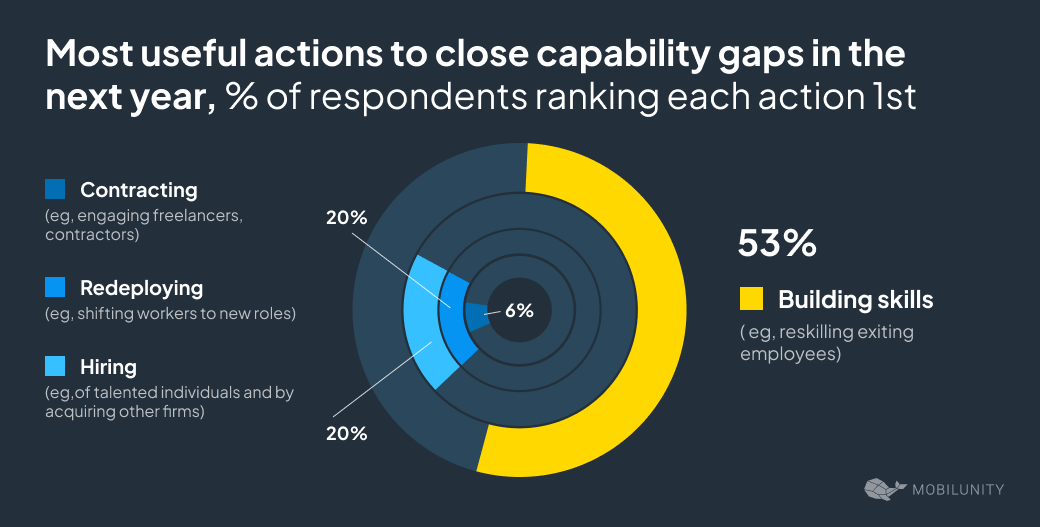Expanding Your Team: How It Works & Why It’s Essential for Growth and Success

The Harvard Business Review magazine states that 95% of senior business leaders tend to establish a talent-first culture since hiring and retaining talent is one of their top 3 priorities.
If you consider expanding the team, learn how hiring every extra talent helps you grow business value and profits.
This guide helps you recognize the need for team growth and explains how to retain experts.
Recognizing the Top 4 Signs That It’s Time to Expand
Team expansion is the solution when your co-workers start struggling to manage tasks effectively.
You’ll recognize this problem by these top signs:
1. Increased Workload
Your team has been handling the growing workload for several weeks consecutively. The overwhelmed and disengaged for weeks employees risk burning out.
According to Fortune, this risk is 82% high in 2024, and its symptoms include:
- Decreased attention spans
- Poor decision making
- Frequent mistakes
- Low employee engagement
- Toxic atmosphere
- More sick leaves
These factors don’t allow you to finish projects on time and keep customers happy. In case your colleagues’ productivity starts declining, it’s a red warning you need a bigger team.
2023 Work in America Survey (APA) revealed that 57% of respondents experienced work-related stress with impacts associated with workplace burnout:
2. Turning Down Work
Receiving contact form inquiries without appointing sales discovery calls for days? Or — unable to implement a feature requested by a customer weeks ago?
It looks like you turn down hot leads and existing clients. And wasted business opportunities slow down your growth.
NOTE! If you’ve declined projects for quite a while, the cause might not be in the processes, but the people.
Pro Tip: once you begin refusing projects due to insufficient staff capacity, it’s time to consider extension of your team as the most value-bringing solution.
You may need only one sales manager, two bookkeepers, or an entire dedicated development team to get the maximum benefit. The investment will pay off through revenues.
3. Missed Deadlines
Sometimes project scopes change so significantly that you can’t avoid shifting deadlines.
But failing to deliver tasks on time repeatedly creates a backlog of work. And, instead of handling it quickly and effectively, stressed employees will need even more time to catch up.
4. Lacking Someone with a Specific Skill
Springboard, a reputable US online learning platform, found that 70% of leaders face skill gaps in their companies. The list of the most-needed expertise in 2024 are data analysis, project management, and AI/Machine Learning.
If you have similar issues and need experts soon, team expansion is the most appropriate option.
Skill gaps are dangerous because employees spend more time on tasks and make mistakes if they lack competency.
Correcting errors and redoing work for subordinates distract managers from their tasks.
Poor quality of deliverables and negative feedback can even cost you a client.
The Benefits of Expanding Your Team
How do new experts help your business?
That’s how they boost your team’s performance and the company’s profits:
Enhanced Productivity
Once you take off a bunch of tasks from your workers, they feel relief and appreciate your care, especially when utilizing IT staff augmentation services to fill skill gaps and boost productivity.
Fairly distributed tasks make your team’s motivation and productivity grow. With fresh and professional minds you get:
- Faster product’s time-to-market
- Embraced customer expectations
- Increased sales
- Improved brand reputation
- Encouraged innovations.
By boosting productivity, you complete assignments on time and achieve strategic goals. And while your team remains collaborative and creative, you stay ahead of the competition.
Improved Work-Life Balance
Remind your colleagues to take breaks and go walking after lunch. This will allow them to prevent burnout and stay refreshed.
Ask your teammates to avoid overtime work and professional communication. Be an example of setting business and personal life apart.
Offer more flexibility in working schedules. For instance, allow your people to take a few hours off to sort out personal issues, and agree when they can catch up this time.
Subordinates will appreciate your way of leading a team with a healthy work-life balance.
In 2023, organizations across the world introduced the following initiatives for their IT employees.
Access to New Skills
Engaging a niche expert gives your company access to specific expertise. With this knowledge, you can speed up the delivery of your service or product and become more competitive.
The new worker brings in enhanced quality and more satisfied clients. Thus, access to new skills will unlock new business opportunities and extend your customer base.
NOTE! Hiring experts is as important as engaging them. So, it’s essential to fit talent retention into your long-term vision and plans.
Overcoming Hesitations and Common Concerns
Getting new specialists aboard isn’t an easy decision. And like other managers, you might have the following worries, too.
Cost Concerns
SHRM, a US-based professional HR membership association, calculated that in 2021, $4,700 was the average CPH (Cost Per Hire) in the United States.
Your number will depend on a few factors:
- Cooperation format: freelancers, employment, contracting, or outstaffing providers.
- Searching approach: yourself, in-house recruiters, external hiring experts, or vendors.
- Demand for the role: hiring a tech expert is more expensive than finding a marketing specialist or an accountant.
Despite the current costs, growing your team with relevant professionals has a strategic impact on your business. You deliver projects of high quality and on time, building trust in your brand.
Fear of Change
You’re discouraged about the cost and risks of hiring. Your vision of how to engage and assess the new team members is unclear, and you don’t have guarantees that this will work at all.
Business growth is stressful but keeping your goals in mind and communicating with managers with similar concerns gives support.
Pro Tip: Turn to recruitment agencies to overcome the fear of hiring unqualified workers, especially if you’re looking for software engineers.
Professionals will help you find workers whose competencies fit your roles.
Maintaining Quality
When leading a team, you need to communicate expectations with its members to ensure a consistently high level of work.
Set quality criteria and metrics and agree on how you’ll review them. Determine realistic benchmarks and ensure your employees have comprehensive training on quality standards.
Pro Tip: Delivering high-quality results is teamwork, so celebrate achievements and appreciate efforts with your peers.
No matter how thoroughly you approach setting and following quality processes, remember to lead by example. Show commitment to delivering top-notch quality since your team sees your attitude to work.
Supporting and Integrating New Team Members
Once hired, new professionals require smooth integration into your workflow. Warm welcoming and ongoing support are critical for your long-term cooperation.
Onboarding Process
A new hire becomes fully productive and engaged only after several weeks.
During this period they pass through all the onboarding stages below:
- Pre-onboarding. Getting the papers signed.
- Orientation. Introducing managers, describing policies, and providing access.
- Role-specific training. Discussing expectations and performance goals.
- Ongoing development. Skill training and assessing competencies.
In 2023, the average onboarding cost was $954 per new employee. This number includes the cost of your HR specialists’ and managers’ time spent on the adaptation. So, ensure your onboarding is carefully planned and considered.
Mentoring and Training
A newcomer needs guidance from a more experienced colleague. So, ensure that each hired person has a mentor who gives advice and answers questions.
This allows you to grow talents and unlock their potential when expanding your team.
According to SHRM and McKinsey, 53% of organizations have upskilling and reskilling priorities in 2024. So, investment in staff training becomes essential for businesses.
NOTE! Gaining the required knowledge develops a growth mindset, adapts employees to changes, and boosts their performance.
In the end, you get a highly competitive and productive team with a low employee churn rate.
Open Communication
If the members of your growing team are free to come up with ideas, provide feedback, and raise concerns, their productivity skyrockets.
Encourage your new and existing workers to ask questions and discuss issues in a group chat. Help them feel safe and respected when expressing honest opinions and sharing insights.
Open communication is an effective engagement technique, as it allows every team member to be heard. It builds trust with your colleagues and fosters collaboration.
But be ready that gaining trust, building rapport, and establishing credibility doesn’t happen overnight.
Planning for Future Growth
Hiring experts to perform critical tasks will help your business in a short perspective. But strategic success needs a more profound approach to team growth.
Long-Term Vision
Expanding your team should always be aligned with the company’s strategic goals. Identify the roles and skills necessary for achieving your objectives.
- What will your customers need in the future?
- What’s the commercial potential for your product or service?
- What are your goals for the next several years and what is the forecasted budget?
The answers will let you plan for long-term growth and minimize uncertainties.
Scalable Processes
With a skilled, bigger team, your business will surely grow. To support this, strategic growth involves keeping all the processes effective when the number of your clients and team members rises,and business scaling solutions ensure that your revenues grow faster than costs.
Pro Tip: Anticipate workload increases and think about which roles and tools will help you embrace the new volume of tasks. This way, you ensure your revenues grow faster than costs.
Regular Assessments
Evaluate your team’s performance and skills on a regular basis. This way, you notice if it’s time for further team growth or structural changes.
Also, implement talent retention strategies to keep your subordinates’ engagement high.
Motivating skilled workers to stay within your company is vital as only 23% of employees were enthusiastic about their work in 2023 (Gallup).
Bottom Line
Expanding your team allows you to land more projects, meet deadlines, and offer your clients better products and services. Your team’s productivity grows due to well-distributed tasks and a healthier work-life balance.
Despite the time, effort, and investment, team expansion offers significant rewards for your business growth and success in the long-term perspective.











Insight
“Companies that put talent at the center of their business strategy realize higher total shareholder returns than their competitors.” (McKinsey)